The world has been on lockdown due to Coronavirus for over a year now, which means any travel plans had to be postponed. This was most unfortunate for people who were considering coming to Korea to have a medical procedure completed. Though Korea has been one of the countries that handled COVID-19 the most effectively and efficiently, it does not mean it has been able to eradicate the virus entirely. Additionally, to keep the virus under control, it has had to create many restrictive regulations such as:
- Keeping gatherings under four people.
- Establishments such as bars and restaurants all closing by 10 PM (though delivery is still available afterward).
- Fines for anyone caught not wearing a mask.
- Social distancing of 2 meters (particularly in schools, restaurants, cafes, etc.).
- Whenever there is a rise in cases or a local one (such as in a school), a temporary online ‘lifestyle’ is required with self-quarantine and an immediate Corona test.
- Pop-up testing centers around the country, particularly in the cities, to prevent infected people from coming in contact with others and overloading the hospitals.
- A mandatory 2-week quarantine for anyone coming back into Korea (regardless of nationality) at home or in a government facility if visiting (paid for by yourself).
These are some of the regulations that have been instated in the past year to control and limit infection rates. Therefore, these are regulations to keep in mind if you are still planning to make the trip this year, as most incur a heavy fine if they are broken. If you are planning to come to Korea this year, as of now, some things to expect include:
- Temperature screening and filling out a Health Questionnaire at the airport.
- 2-week mandatory quarantine in your Korean home (for nationals or foreign national residents) or a government facility for short-term visitors or if a national’s home is considered ‘unfit,’ that will have to be paid for by yourself.
- Generally, costs about KRW 1,680,000 per person (~$1,600).
- Housing will be random and cannot be changed nor chosen.
- You will be escorted from the airport to your 14-day housing.
- Must have a negative result on the COVID-19 test 72 hours prior to coming to Korea.
- Re-testing for Coronavirus within three days of your arrival, during quarantine, regardless of having been tested before arriving in Korea.
- Visitors will be tested automatically at their quarantine facility.
- Residents must go by foot to the nearest public test center.
- Usage of public transportation is not allowed.
- Downloading an app ‘Self Diagnosis’ and updating it twice daily with any symptoms and a daily call from the KCDC.

If, for some reason, you do test positive once you are in Korea, you will be responsible for some, if not the whole, cost of expenses related to Covid-19.
- Some costs:
- If you are visiting short-term, The Government of the Republic of Korea will cover costs related to (a) test and (b) the use of isolation facility, whereas individuals will bear costs related to (a) treatment and (b) food, among others.
- Long-term visitors (Alien Registration Cardholders) will have similar payments as short-term. However, due to the mandatory health coverage that long-term residents must-have, the individual cost will be decreased to about 20% of what a short-term resident would pay individually.
- Full costs:
- If you contracted the virus due to breaking quarantine or the regulations stated previously, submitting a false PCR test, etc., you would be 100% responsible for all costs.
Therefore, it is highly recommended to come to Korea insured or to be insured here prior to arrival. If, when coming to Korea, you do not comply with the quarantine guidelines, you may face up to 1 year of imprisonment or a KRW 10 million fine for violating the Quarantine Act and Infectious Disease Control and Prevention Act. According to the Immigration Act, foreign nationals violating the regulations may face deportation or a ban on entry into Korea.

‘How can I be exempted from quarantine?’ may be a question you are asking yourself now. However, as of now, there are only a few options, being someone who holds an A1 (Diplomat) or an A2 (Government official) visa or a Quarantine Exemption Certificate that the Korean Embassy or Consulate-General issued prior to the entry. However, there is good news for long-term residents in Korea. Recently, the Korean government announced that if you are fully vaccinated in Korea, the quarantine regulations will be waived beginning May 5th, 2021.
Overall, suppose you had or have been looking at Korea as an option for plastic surgery due to the quality offered here, as well as reasonable pricing. In that case, quarantine restrictions may be a factor to add to your expenses. If you can comfortably meet quarantine regulations, getting a procedure in Korea is generally painless. Companies offer packages to help combine all costs and translators, so your experience is as comfortable as possible. You will also be able to enjoy Korea as you spend a week or two in Korea for recovery purposes as most places are running as regular aside from 10 PM curfews. As Corona cases fluctuate, so do the regulations. Make sure to stay up to date on the current rules if you make the conscientious decision to visit to make your stay here as enjoyable as possible.


